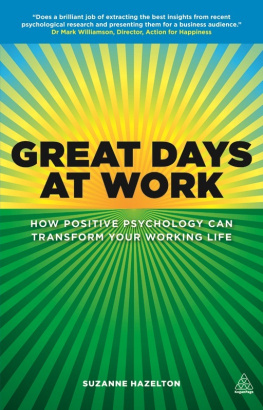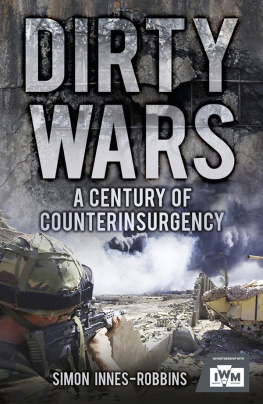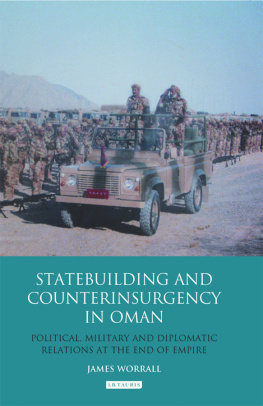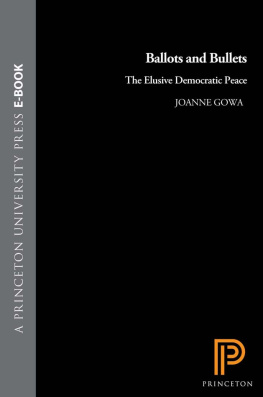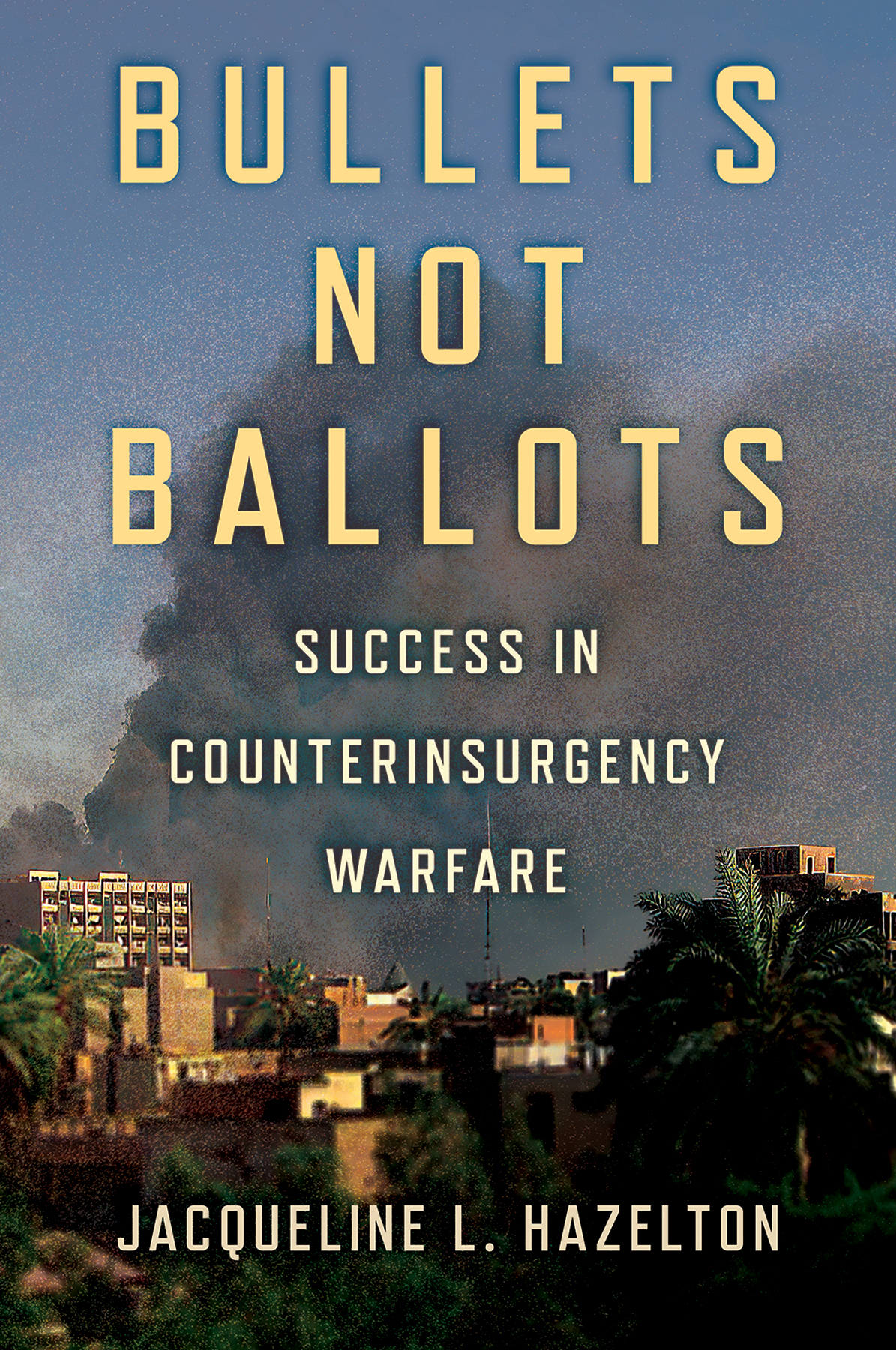JACQUELINE L. HAZELTON
There is nothing more difficult to take in hand, more perilous to conduct, or more uncertain in its success, than to take the lead in the introduction of a new order of things. Because the innovator has for enemies all those who have done well under the old conditions, and lukewarm defenders in those who may do well under the new.
Acknowledgments
Every work of scholarship is a collective enterprise. I am fortunate to have had the support of several communities in writing this book. Above all, I have to thank Robert Art as my adviser, mentor, and guide to the world of international relations. It is a pleasure and a privilege to serve as his apprentice. He very properly recused himself from this project. Along with Bob, Steven Burg provided wise advice and support through his comparativists eye as this project took shape. I thank Robert Pape for sending me to work with Bob Art; this was a great gift. Bob Pape tutored me in the ways of academia when I was an MA student who had never studied political science but brought a journalists experience and keen mind to the problems of compellence, terrorism, and Islamic political thought. Other members of my community at the University of Chicago, the Massachusetts Institute of Technology, and the Harvard Kennedy School have also been unfailingly supportive and generous. This community includes Steven Miller and Stephen Walt of the International Security Program at the Belfer Center, my scholarly home for two idyllic years; Barry Posen, who introduced me to Dhofar; and John Mearsheimer and Charles Glaser. I appreciate the welcome I have received at workshops held by the International Security Program at the Kennedy School, the Security Studies Program at MIT, and the Program on International Security Policy at Chicago. They are where I learned my trade.
I appreciate the unfailing interest and generosity of the community of scholars of insurgency and counterinsurgency and practitioners of counterinsurgency who seek theoretically and empirically sound answers to important policy questions, including Dale Andrade, Huw Bennett, Stephen Biddle, Andrew Birtle, Nick Carter, Joe Collins, Conrad Crane, Greg Daddis, William Fallon, Brendan Green, Karl Hack (whose exclamation that the standard story about the Malayan Emergency is just not true heartened me in my exploration of what counterinsurgency involves in real life), Tim Hoyt, Colin Jackson, Chaim Kaufmann, Jen Keister, Austin Long, Michael Parkyn, David Petraeus, Daryl Press, Joshua Rovner, David Strachan-Morris, Christian Tripodi, Benjamin Valentino, the late Vol Warner, Bob Wilson, Isaac Wilson, and Toshi Yoshihara.
Others who read all or part of this manuscript in a rough or abbreviated form, early or late or both, and helped me strengthen it include Fiona Adamson, Alex Downes, Roger Haydon, Jeremy Pressman, Steve Simon, the Cornell series editor responsible for shepherding it through the process, and the anonymous reviewer. I am particularly grateful to Richard Betts, Michael Desch, David Edelstein, Sean Lynn-Jones, Steve Miller, Ken Oye, Roger Petersen, Josh Rovner, and William Wohlforth for reading a full, if rough, draft and spending a day talking about it. I appreciate greatly the support of the International Security Program in this endeavor.
For endless moral and professional support, I can never sufficiently thank guides, philosophers, and friends Teresa Cravo, Susan Lynch, Emily Meierding, and Karthika Sasikumar. Others whose support has kept me going include Deborah Avant, Jon DiCicco, Janina Dill, Rebekka Friedman, Frank Gavin, Anne Harrington, Ron Hassner, the late Joyce Heckman, Helen Kinsella, Nuno Monteiro, Karen Motley, Dipali Mukhopadhyay, the late Aaron Rapport, Norrin Ripsman, Andy Ross, Paul and Alison Schulte (who kindly and repeatedly hosted an iterant scholar in Kilburnistan), Monica Toft, and Leslie Vinjamuri. Ana Steffan showed me the power of thinking like a social scientist. Bob Reid generously provided the cover image. Josh Busby suggested the title. Thank you to International Security for allowing me to draw on my article, The Hearts and Minds Fallacy: Violence, Coercion, and Success in Counterinsurgency Warfare.
On Dhofar specifically, for their help and hospitality, I thank the fellows, students, and staff at the Middle East Centre at St. Antonys, Oxford; Lawrence Freedman; Charles Guthrie; J. E. Peterson; Abdel Razzak Takriti; and especially the members of the Sultans Armed Forces, the British Army, and others who worked in Dhofar who have spoken and corresponded with me with great generosity and hospitality, including Donal Douglas, Ian Gordon, Peter Isaacs, Tony Jeapes, Nigel Knocker, Ken Perkins, and Martin Robb.
On El Salvador, I thank Dale Andrade, Andrew Bacevich, John Clearwater and Lisa Moore at Fort Bragg, Sarah Zukerman Daly, James Hallums, Peter Kornbluh, Rodrigo Javier Massi, Benjamin Schwarz, Kalev Sepp, Jocelyn Viterna, Timothy Wickham-Crowley, and most of all those who shared with me their experiences in and thoughts on El Salvador, including Cecil Bailey, Ari Bogaard, Charles Briscoe, Alvaro Antonio Caldern Hurtado, Charles Clements, Jeffrey Cole, Edwin Corr, Commandante Ernesto (the nom de guerre of a Salvadoran insurgent leader), John Fishel, Todd Greentree, Mark Hamilton, Kevin Higgins, Max Manwaring, Bob Nealson, Francisco Pedrozo, Gilberto Perez, the late Rene Emilio Ponce, Henry Ramirez, Leamon Ratterree, Ranger Roach, Luis Orlando Rodriguez, Hy Rothstein, Nina Serafino, Simeon Trombitas, and Mauricio Vargas.
I am most appreciative of support from Brandeis University and its politics department, the Mellon Foundation, the U.S. Army Center of Military History for a Ridgway Research Grant, and the Naval War College Foundation.
Archivists and librarians are fundamental to scholarly work, and I cannot love them enough. Thanks to the archivists at the Imperial War Museum, London, including Simon Innes-Robbins and Paul Cornish for his amazing tour of Dhofar-type small arms in the bowels of the former Bedlam; the Liddell Hart Centre for Military Archives at Kings College London and Cathy Williams; the UK National Archives; the Oman Archive at St. Antonys College, Oxford, and archivist Deborah Usher; the Tameside Local Studies and Archives Centre, Ashton-under-Lyne, Lancashire, and Adam Allen; the U.S. Army Center of Military History, Carlisle, Pennsylvania, including Pam Cheney, Con Crane, Randall Rakers, and Richard Sommer; the National Security Archive, Washington, DC, and Mary Curry; the Bodleian Library, Oxford, and senior archivist Lucy McCann; the U.S. National Archives and Elizabeth Gray; and the librarians at Brandeis, Harvard, Rochester, and the Naval War College, particularly the staff at Newport, including Heidi Garcia, Robin Lima, and Jack Miranda.
Finally, my family raised me to question assumptions and challenge easy answers. It is not always comfortable to do so, for me or anyone in my vicinity, but they set me on the path to living an examined life. I am forever grateful. I could not have done any of it without them and without the comforting companionship of my cats.
All views are my own, not those of any government entity, as are all errors.
CHAPTER1
Counterinsurgency


